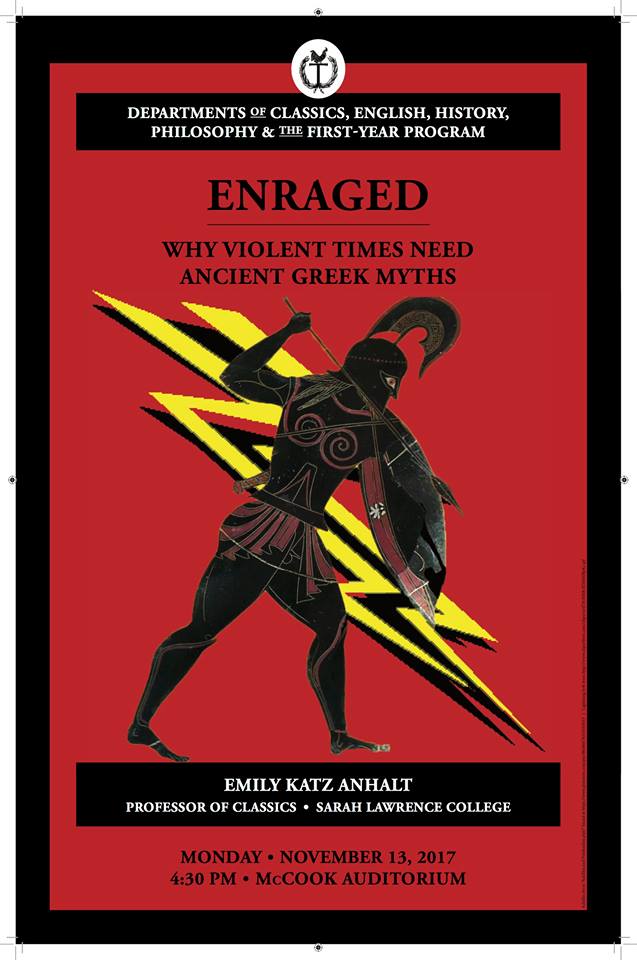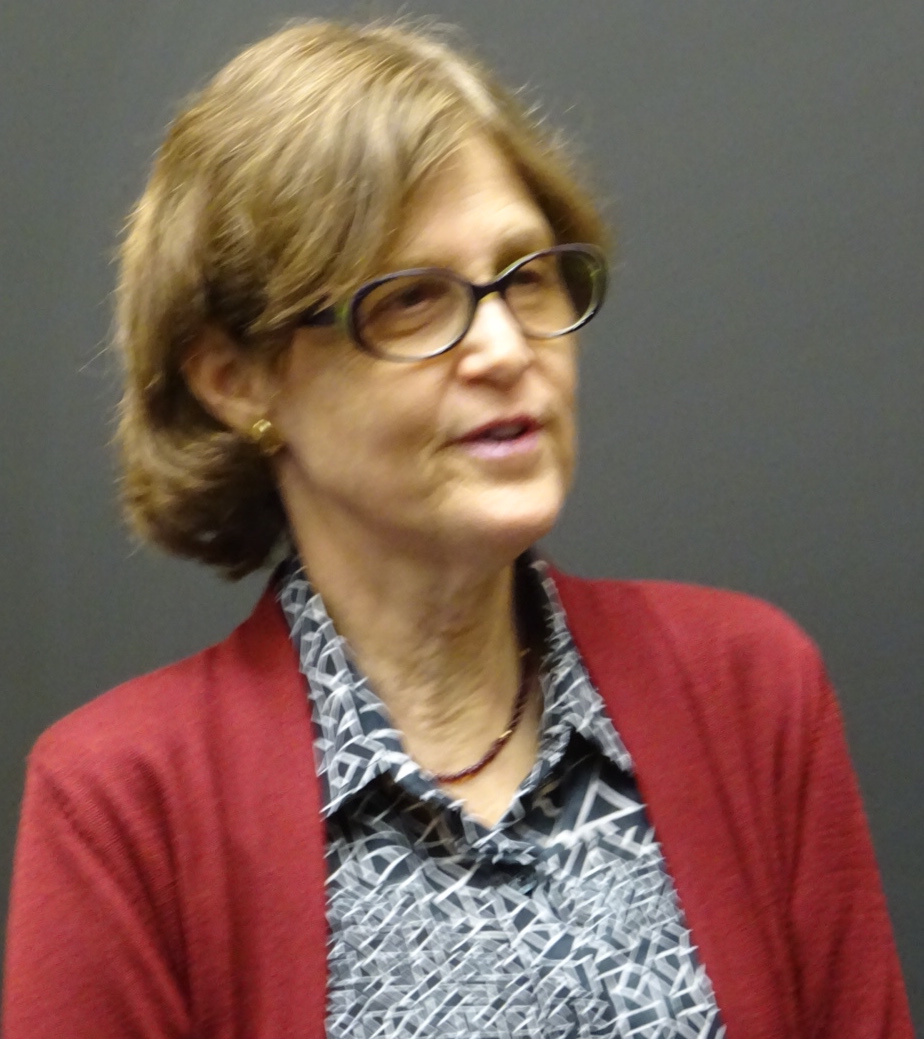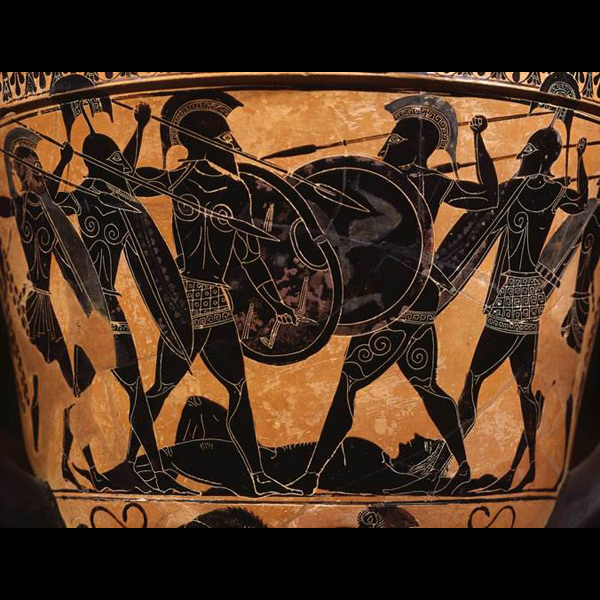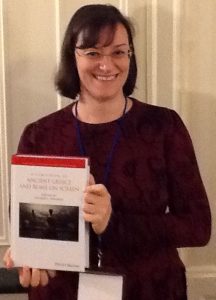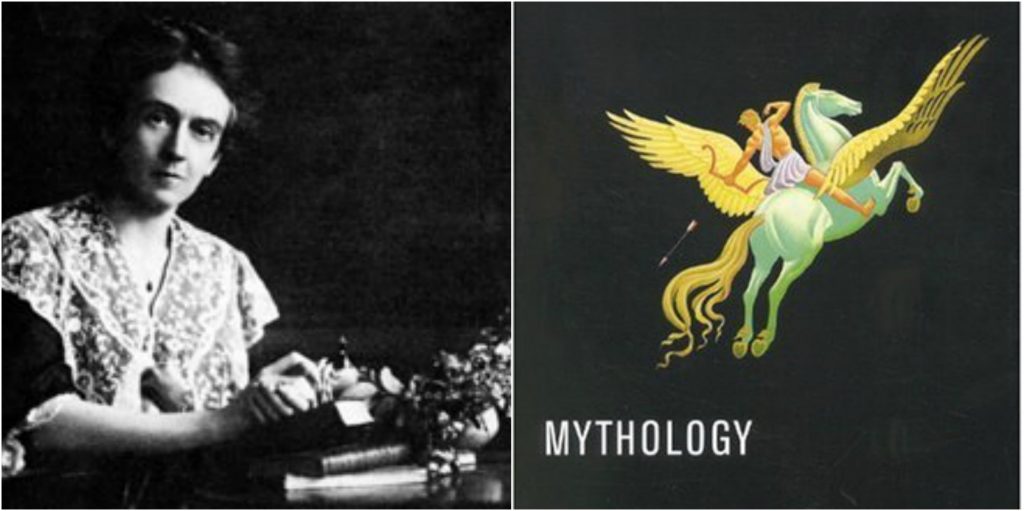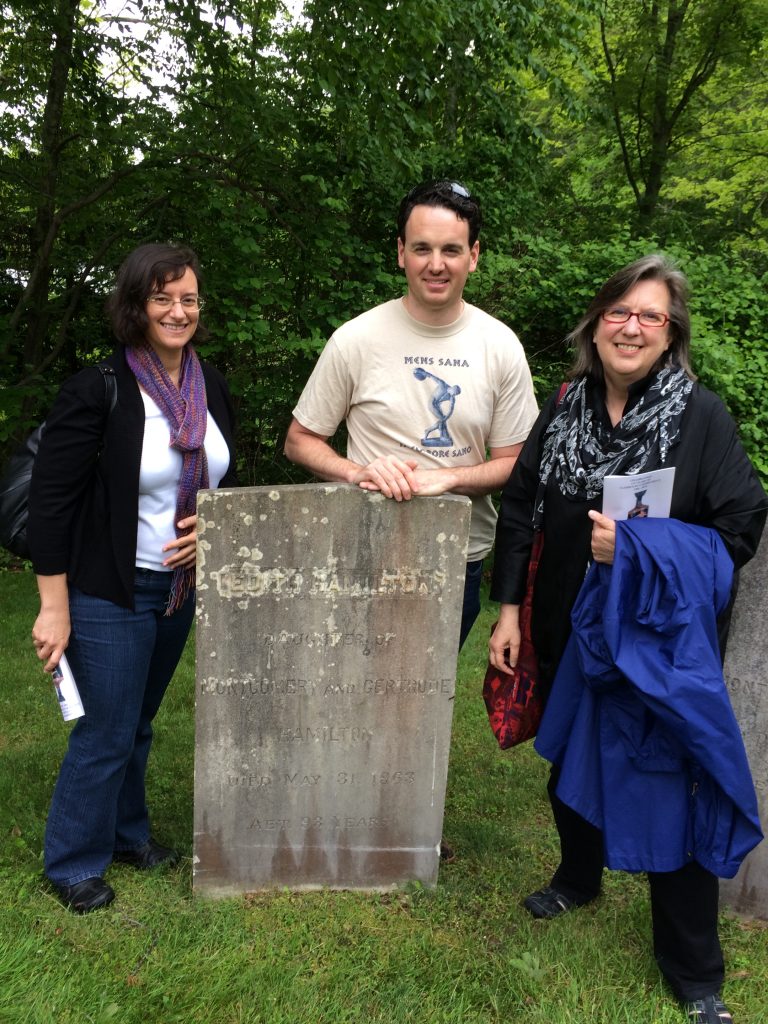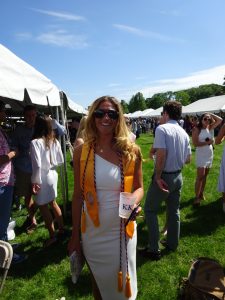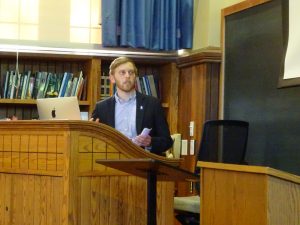On December 5th and 7th 2017, the senior Classics majors presented the projects that they’ve been working on this fall semester.
Dylan Ingram, who’s also a Math major, talked about a project that he’ll be pursuing further next semester about how the ancient Greek language changed over the course of time. He’s particularly interested in how the contact between the cultures of Greece, Egypt, and Rome and their languages of Greek, Coptic, demotic, and Latin during the Hellenistic period changed the Greek language.
 Katilin Breen presented her project about how religion was practiced during the Roman Empire by the people living in Akko, Israel. Katelyn was inspired by her work at the summer excavations there run by our own Dr. Risser. Because Akko is situated on the coast of Israel, the people living in that region had contact with a variety of nations in the Mediterranean, including the nearby Phoenicians. When the Romans conquered Akko, they overlaid their own religious practices onto the native ones already present.
Katilin Breen presented her project about how religion was practiced during the Roman Empire by the people living in Akko, Israel. Katelyn was inspired by her work at the summer excavations there run by our own Dr. Risser. Because Akko is situated on the coast of Israel, the people living in that region had contact with a variety of nations in the Mediterranean, including the nearby Phoenicians. When the Romans conquered Akko, they overlaid their own religious practices onto the native ones already present.
A double major in Economic and Classics, Tristan McConnell discussed his project on some contentious issues surrounding Alexander the Great. Tristan has focused particularly on the so-called “brotherhood of mankind” theory that holds that Alexander was genuinely interested in unifying the cultures that he conquered. Another area of interest for Tristan’s project is Alexander’s relationship with his Persian subjects and his adopting of Persian customs. Did Alexander do these things with “noble or selfish intentions”?
contentious issues surrounding Alexander the Great. Tristan has focused particularly on the so-called “brotherhood of mankind” theory that holds that Alexander was genuinely interested in unifying the cultures that he conquered. Another area of interest for Tristan’s project is Alexander’s relationship with his Persian subjects and his adopting of Persian customs. Did Alexander do these things with “noble or selfish intentions”?
Kelcie Finn continued the Alexander thread with her research into the relationship between the Macedonian leader and Hephaistion, one of his generals and a friend from childhood. Kelcie argued that Alexander and Hephaistion had an intimate relationship from comments made by the ancient historians Arrian and Diodorus of Sicily as well as the parallel with Achilles and Patroclus in Homer’s Iliad.
A pre-med student, Sophie Akoundi presented the first half of her year-long thesis project, “An Introduction to Ancient Greek Gynecology.” She’s looking at three ancient sources that discuss women in ancient Greece: the epic poet Hesiod and the medical writers Hippocrates and Soranus.
The long reception history of Sappho was at the center of Caroline Manns’ presentation “Imagining Sappho: a Reception History.” Unsurprisingly for a project focusing on a female poet of the Greek island of Lesbos, Caroline is a Classics and Gender Studies double major. She covered the different receptions and resulting re-interpretations of Sappho by the Christian church (a prostitute), by the Italian Renaissance (an unhappy woman), German scholars in the nineteenth century (schoolmistress), and contemporary thinkers (a lesbian).
center of Caroline Manns’ presentation “Imagining Sappho: a Reception History.” Unsurprisingly for a project focusing on a female poet of the Greek island of Lesbos, Caroline is a Classics and Gender Studies double major. She covered the different receptions and resulting re-interpretations of Sappho by the Christian church (a prostitute), by the Italian Renaissance (an unhappy woman), German scholars in the nineteenth century (schoolmistress), and contemporary thinkers (a lesbian).
Claudia Garrote, a History and Classics double major, presented on her project, “Olive Oil Trade in the Roman Empire.” She explained how the olive oil trade between the Roman province of Hispania (modern Spain) and the Roman Empire functioned through factors like Rome’s location, the emperor Augustus’ fiscal changes, and military demand for the oil.
A Classics major on the history track, Winston Brewer was inspired to take up his project “The Roman Gentleman.” His presentation defined the elements of a “proper” Roman man in antiquity: his family, class, his dress style (with the ever-popular toga), and the quality of virtus (“excellence”; literally “the quality of being a vir [man].”
 “Understanding Roman Reverence for Greek Education During the Middle Republic” was the subject of Andy Rosenblatt’s presentation. Andy discussed how Roman education changed via contact with Greek culture when the Romans conquered Greece in the first century BCE. He argued that, despite the sometimes too-large place that ancient Rome has in our collective imaginations, it “owes a significant debt to the Greeks.”
“Understanding Roman Reverence for Greek Education During the Middle Republic” was the subject of Andy Rosenblatt’s presentation. Andy discussed how Roman education changed via contact with Greek culture when the Romans conquered Greece in the first century BCE. He argued that, despite the sometimes too-large place that ancient Rome has in our collective imaginations, it “owes a significant debt to the Greeks.”
Lydia Herndon presented the first part of her two-semester project on “Pagan Paideia and Christian Culture in the 4th century.” Paideia, the Greek word for “education,” was seen as an important tool for the construction of identity as well as for addressing the Roman emperor, and many early Christian writers and thinkers were teachers of rhetoric. As Lydia pointed out, however, some Christians were concerned about the non-Christian aspects of that system, and this tension is important for our understanding of the period.
Christian Culture in the 4th century.” Paideia, the Greek word for “education,” was seen as an important tool for the construction of identity as well as for addressing the Roman emperor, and many early Christian writers and thinkers were teachers of rhetoric. As Lydia pointed out, however, some Christians were concerned about the non-Christian aspects of that system, and this tension is important for our understanding of the period.
A comparison between Ernest Hemingway’s novel A Farewell to Arms and Virgil’s epic poem the Aeneid, Will Verdeur’s presentation was entitled, “Spears & Rifles: War in the Work of Vergil and Hemingway.” In addition to Hemingway’s statement that Vergil was one of “forebears”, Will talked about the “moral ambiguity of war” n both works, comparing the atrocities in the city of Troy in Aeneid Book 2 to war-time atrocities in the Italy of Hemingway’s novel. We’re excited to hear more about this project when it moves into its next phase in the spring, with a comparison of Hemingway’s For Whom the Bell Tolls to Vergil.
Congratulations to all of the Classics seniors who presented on jobs well done!









